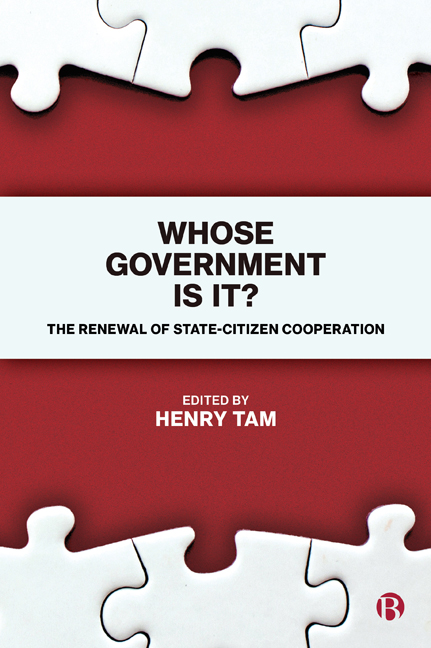1 - Government With The People
Published online by Cambridge University Press: 27 April 2022
Summary
The civic ideal of self-governance proclaims that none but the citizens should rule over themselves. In theory, this sets the ultimate goal for democracy. In practice, it raises the perennial question of how much any government can realistically leave the people to decide for themselves.
It is simply not possible for governments with jurisdiction over millions of people to bring them together to discuss every issue that needs to be dealt with and reach an informed agreement about what is to be done. This could mean that an increasing number of decisions are made by just a few without much involvement of the vast majority of the people, who become ever more doubtful if their views count for anything at all. On the other hand, more decisions could be passed to the people at the risk of choices being made without due consideration of the facts or arguments, and public policies are left to shift as a result of whims, ignorance and manipulation.
One response to this conundrum is to reduce the scope of the state. If a government has fewer responsibilities, then it should be relatively easier for it to keep in touch with citizens about how it will exercise those responsibilities. Accordingly, to get to a more ‘focused’, ‘streamlined’ or ‘minimalist’ state, a wide range of public actions are to be abandoned, while any needs previously addressed by them will be left to the market or communities to deal with. Since the 1980s, in the UK, the US and many other countries, this became a favourite policy stance among those who want to shrink the state. Leaving aside the arguments about the impact of such changes (Drakeford, 2014; Hermann, 2015), unless citizens are involved in assessing and shaping the decisions over what options to adopt, such an approach would in itself constitute a large-scale exercise in removing citizens’ control. Whatever the motives behind pushing ahead with it, it removes democratic accountability for all that is unilaterally taken out of the public domain without giving citizens any greater say over what remains (Tam, 2011; Maugham, 2015).
From the 1990s, what came to be known as New Public Management emerged as a model for developing a more responsive state (Ferlie et al, 1996; Lane, 2000). It applies private sector managerial practices to the development and delivery of public policies.
- Type
- Chapter
- Information
- Whose Government Is It?The Renewal of State-Citizen Cooperation, pp. 3 - 18Publisher: Bristol University PressPrint publication year: 2019



